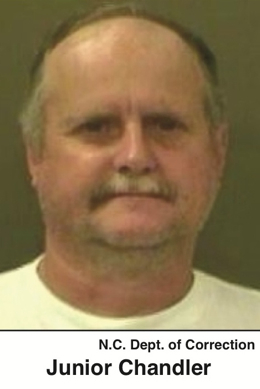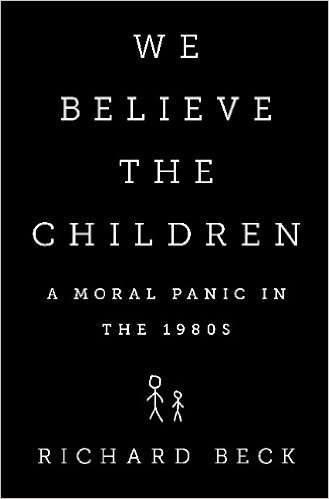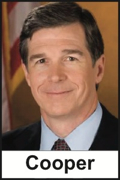Rascals case in brief
In the beginning, in 1989, more than 90 children at the Little Rascals Day Care Center in Edenton, North Carolina, accused a total of 20 adults with 429 instances of sexual abuse over a three-year period. It may have all begun with one parent’s complaint about punishment given her child.
Among the alleged perpetrators: the sheriff and mayor. But prosecutors would charge only Robin Byrum, Darlene Harris, Elizabeth “Betsy” Kelly, Robert “Bob” Kelly, Willard Scott Privott, Shelley Stone and Dawn Wilson – the Edenton 7.
Along with sodomy and beatings, allegations included a baby killed with a handgun, a child being hung upside down from a tree and being set on fire and countless other fantastic incidents involving spaceships, hot air balloons, pirate ships and trained sharks.
By the time prosecutors dropped the last charges in 1997, Little Rascals had become North Carolina’s longest and most costly criminal trial. Prosecutors kept defendants jailed in hopes at least one would turn against their supposed co-conspirators. Remarkably, none did. Another shameful record: Five defendants had to wait longer to face their accusers in court than anyone else in North Carolina history.
Between 1991 and 1997, Ofra Bikel produced three extraordinary episodes on the Little Rascals case for the PBS series “Frontline.” Although “Innocence Lost” did not deter prosecutors, it exposed their tactics and fostered nationwide skepticism and dismay.
With each passing year, the absurdity of the Little Rascals charges has become more obvious. But no admission of error has ever come from prosecutors, police, interviewers or parents. This site is devoted to the issues raised by this case.
On Facebook
Click for earlier Facebook posts archived on this site
Click to go to
Today’s random selection from the Little Rascals Day Care archives….
Click for earlier Facebook posts archived on this site
Click to go to
Today’s random selection from the Little Rascals Day Care archives….
Parents gave thumbs down to first ‘Innocence Lost’
June 5, 2013
“More than 50 parents of alleged child victims in the Edenton day care sex abuse case issued a statement Tuesday criticizing ‘Innocence Lost’ (after) reviewers in the national press hailed the show as a compelling portrait of a small town that may have become overcome with mass hysteria:….
“ ‘ “Innocence Lost” conveyed the false impression that parents of the children came to the conclusions of sexual abuse as a hysterical reaction to rumors of abuse.
“ ‘We, as parents, came to the devastating conclusion of the sexual abuse of our children after great reluctance and only after the most convincing evidence, evidence which could not be revealed in interviews for “Innocence Lost” and can only be revealed during the trials of the defendants.’
“Specifically, the parents faulted the show for:
- “Failing to make clear that parents could not discuss ‘the factual reasons for the determinations of sexual abuse’ because of pending trials.
- “Suggesting to viewers that three state-sponsored, local therapists were responsible for evaluating the children when ‘in fact, the children were evaluated by no less than eight independent therapists, none of whom live or practice in Edenton, N.C.’
- “Giving the impression that the families who used the day care center were a ‘prestigious group’ when they represent a ‘broad economic and social cross-section of the town of Edenton.’ ”
– From “Day care parents resent implications of hysteria” (News & Observer, May 15, 1991)
Most disingenuous is the Little Rascals parents’ claim that “the most convincing evidence… could not be revealed in interviews for ‘Innocence Lost’ and can only be revealed during the trials of the defendants.”
In fact, it was the parents themselves who had so excitedly “revealed” the supposed evidence and sent it coursing unchecked through the town’s consciousness, reproducing and mutating as it spread, and resulting in unimaginable tragedy.
How to make ‘facts and science ultimately irrelevant’
 March 8, 2015
March 8, 2015
“As public debate rages about issues like immunization, Obamacare, and same-sex marriage, many people try to use science to bolster their arguments. And since it’s becoming easier to test and establish facts – whether in physics, psychology, or policy – many have wondered why bias and polarization have not been defeated. When people are confronted with facts, such as the well-established safety of immunization, why do these facts seem to have so little effect?
“Our new research, recently published in the Journal of Personality and Social Psychology, examined a slippery way by which people get away from facts that contradict their beliefs…. (They) reframe an issue in untestable ways. This makes potential important facts and science ultimately irrelevant to the issue….
“These experiments show that when people’s beliefs are threatened, they often take flight to a land where facts do not matter. In scientific terms, their beliefs become less ‘falsifiable’ because they can no longer be tested scientifically for verification or refutation….”
– From “Why People ‘Fly from Facts’ ” by Troy Campbell and Justin Friesen in Scientific American (March 3)
And what allegations could be more “untestable” than pure fantasy? As Junior Chandler knows too well, “….It’s extremely hard to get help to prove my innocence when there isn’t a crime committed to begin with.”
At last, book lays bare ‘satanic ritual abuse’ era
 Aug. 10, 2015
Aug. 10, 2015
Since I undertook this blog in 2011, I’ve been waiting for a mass-market book that recalls the “satanic ritual abuse” day-care era with authority, insight and thoroughness.
“We Believe the Children: A Moral Panic in the 1980s” comes pretty darn close to meeting that standard. (I do wish author Richard Beck had addressed the significant post-panic contributions of Richard Noll and Allen Frances.)
I’ll be posting excerpts from the book and later an interview with Beck.
Meanwhile, I’ve been pleased to see the reviews in the news media – so far, all largely appreciative.
“…This book does a devil of a job correcting… all the lies and self-deceptions, so credulously believed in the 1980s….”
– From “Child Abuse Cases Endure as Lessons in Hysteria” by Mark Oppenheimer in The New York Times (Aug. 6)
“ ‘We Believe the Children’ should serve to remind us of the dangers of the ‘we must believe the victim’ mindset in the case of any criminal offense. A faith-based pursuit of justice can lead to a miscarriage of justice.”
– From “What Fueled the Child Sex Abuse Scandal That Never Was?” by Lizzie Crocker at the Daily Beast (Aug. 3)
“ ‘We Believe the Children’ reveals the various combinations of ignorance, venality, arrogance and zealotry that characterized the major players who fueled the moral panic.”
– From “A Very Model Moral Panic” by Carol Tavris in the Wall Street Journal (Aug. 7)
Here also is a radio interview with Beck and – inevitably – a response from witch-hunt denier Ross Cheit.
Mr. Attorney General, here’s chance to do right
 Aug. 13, 2012
Aug. 13, 2012
I wrote Mark Davis, general counsel to Gov. Bev Perdue, to ask that she issue a “statement of innocence” on behalf of the Edenton Seven. This is Davis’s response: “Because the Attorney General’s Office handled the appeals in the cases you reference in your letter, I think that office is in the best position to evaluate this issue. I suggest you contact them regarding this matter.”
So noted. This, then, is from a letter I sent last week to Roy Cooper, attorney general of North Carolina:
When the Duke lacrosse case collapsed in 2007, you granted the defendants a “statement of innocence.” Although the statement was not a formal legal document, as I understand it, it clearly demonstrated your commitment to making amends for a wrongful prosecution by the State of North Carolina.
I am requesting that you take similar action on behalf of the defendants in the notorious Little Rascals Day Care case.
For more than a decade, beginning in the 1980s, day care centers across the United States were victimized by a wave of wholly unsubstantiated charges of “ritual sexual abuse.” The testimony of child-witnesses, corrupted by misguided therapists, resulted in dozens of convictions and incarcerations.
In all these cases, charges eventually were dropped, convictions overturned or plea agreements accepted with no admission of guilt.
Today there is no dispute among respected psychiatrists, psychologists and social scientists: The defendants were innocent victims of a “moral panic” that bore striking similarities to the Salem witch hunts 300 years earlier.
One of the most prominent of these prosecutions, of course, was the Little Rascals case in Edenton. Between 1991 and 1997 the PBS series “Frontline” devoted a total of eight hours to the plight of the Edenton Seven, leaving millions of viewers appalled at North Carolina justice.
After the longest and costliest trial in state history, Robert Kelly was convicted of 99 counts of child abuse and sentenced to 12 consecutive life sentences. He served six years before the North Carolina Court of Appeals overturned his conviction.
Dawn Wilson was convicted on five counts of child sex abuse and given a life sentence. She served two years in prison or under house arrest. The Court of Appeals also overturned her conviction.
Betsy Kelly and Scott Privott both agreed to plea deals with no admission of guilt.
Charges against Robin Byrum, Darlene Harris and Shelley Stone were dropped.
After the defendants were released, however, prosecutors continued to insist they were guilty. Exoneration was willfully withheld.
The Little Rascals case not only shattered the lives of the defendants, but also left a deep and ugly stain on the reputation of the State of North Carolina.
In 2001, Massachusetts Governor Jane Swift signed a resolution proclaiming the innocence of the victims of the Salem Witch Trials.
In time, such victims of the ritual-abuse day-care panic as the Edenton Seven will surely receive similar exoneration. Why not now? Why not in North Carolina? This is an opportunity to demonstrate moral leadership on a national scale.
I blog about the case at littlerascalsdaycarecase.org, where you will find an extensive archive and updates. I would be eager to provide additional facts by e-mail or to meet with you in Raleigh at your convenience.
Mr. Cooper, I appreciate very much your attention to reviewing this case and to perhaps mitigating the profound injustice suffered by these seven innocent North Carolinians.
I’ll post his response, of course.











0 CommentsComment on Facebook